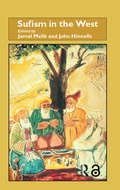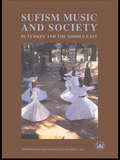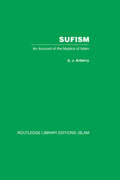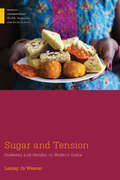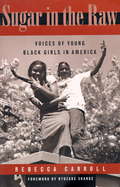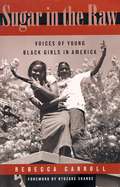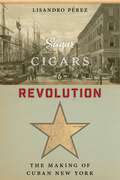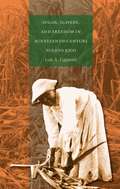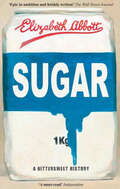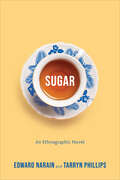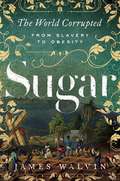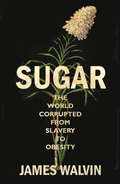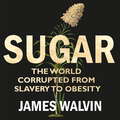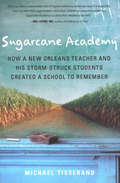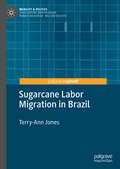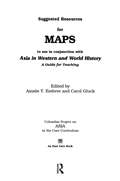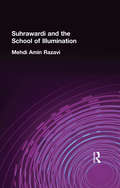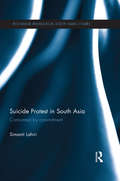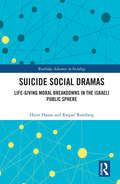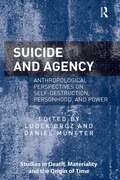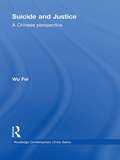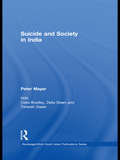- Table View
- List View
Sufism in the West: Mystical Islam And Cross-cultural Exchange In The Modern World (Studies On Sufism Ser. #2)
by Jamal Malik John HinnellsWith the increasing Muslim diaspora in post-modern Western societies, Sufism – intellectually as well as sociologically – may eventually become Islam itself due to its versatile potential. Although Sufism has always provoked considerable interest in the West, no volume has so far been written which discusses this aspect of Islam in terms of how it is practised in Western societies. Bringing together leading international authorities to survey the history of Islamic mysticism in North America and Europe, this book elaborates the ideas and institutions which organize Sufism and folk-religious practices. The chapters cover: the orders and movements their social base organization and institutionalization recruitment-patterns in new environments channels of disseminating ideas, such as ritual, charisma, and organization reasons for their popularity among certain social groups the nature of their affiliation with the countries of their origin. Providing a fascinating insight into how Sufism operates within different spheres of society, Sufism in the West is essential reading for students and academics with research interests in Islam, Islamic history and social anthropology.
Sufism, Music and Society in Turkey and the Middle East
by Anders Hammarlund Tord Olsson Elisabeth OzdalgaAfter decades of prohibition, Mevlana ceremonies of whirling dervishes attract renewed interest as forms of sacral music, both in formal and popular genres. This trend runs parallel to an increasing concern for cultural, ethnic and religious identities, where the rising tide of religious revivalism sets the tone.
Sufism: An Account of the Mystics of Islam
by A.J. ArberryOriginally published in 1950.Thinkers such as Ghazali and Ibn `Arabi, poets such as Ibn al-Farid, Rumi, Hafiz and Jami were greatly inspired by the lives and sayings of the early Sufis. This book was the first short history of Sufism to be published in any language, illustrating the development of its doctrines with numerous quotations from literature.
Sugar Money: A Novel
by Jane HarrisSet in 1765 on the Caribbean islands of Grenada and Martinique, Sugar Money opens as two enslaved brothers - Emile and Lucien - are sent on an impossible mission forced upon them by their masters, a band of mendicant French monks. The monks run hospitals in the islands and fund their ventures through farming cane sugar and distilling rum. Seven years earlier - after a series of scandals - they were ousted from Grenada by the French authorities, and had to leave their slaves behind. Despite the fact that Grenada is now under British rule, and effectively enemy territory, the monks devise an absurdly ambitious plan: they send Emile and Lucien to the island to convince the monks’ former slaves to flee British brutality and escape with them. Based on a historical rebellion, award-winning writer Jane Harris peoples her daring novel with unforgettable characters. Recounted by Lucien, the younger brother, this story of courage, disaster, and love, is a testament to the tenacity of the human spirit under the crush of unspeakable cruelty.
Sugar and Tension: Diabetes and Gender in Modern India (Medical Anthropology)
by Lesley Jo WeaverWomen in North India are socialized to care for others, so what do they do when they get a disease like diabetes that requires intensive self-care? In Sugar and Tension, Lesley Jo Weaver uses women’s experiences with diabetes in New Delhi as a lens to explore how gendered roles and expectations are taking shape in contemporary India. Weaver argues that although women’s domestic care of others may be at odds with the self-care mandates of biomedically-managed diabetes, these roles nevertheless do important cultural work that may buffer women’s mental and physical health by fostering social belonging. Weaver describes how women negotiate the many responsibilities in their lives when chronic disease is at stake. As women weigh their options, the choices they make raise questions about whose priorities should count in domestic, health, and family worlds. The varied experiences of women illustrate that there are many routes to living well or poorly with diabetes, and these are not always the ones canonized in biomedical models of diabetes management.
Sugar in the Raw
by Rebecca Carroll Ntozake ShangeWith raw candor, elicited by Rebecca Carroll's perceptive questioning, 15 black women between the ages of 11 and 18, from places as diverse as Brooklyn and Seattle, Alabama and Vermont, speak out about their inner and outer lives. What they say about identity, self-esteem, the role of race in their perceptions and treatment, personal values, and their hopes for the future is both enlightening and moving. 144 pp. National pubilcity. 15,000 print.From the Trade Paperback edition.
Sugar in the Raw: Voices of Young Black Girls in America
by Rebecca CarrollThis is a collection of the hopes, ideas and views on life of fifteen Afro-American teen-age girls. The book is about how they are determined to be successful even while struggling against racial discrimination.
Sugar, Cigars, and Revolution: The Making of Cuban New York
by Lisandro PérezWinner, 2020 Herbert H. Lehman Prize for Distinguished Scholarship in New York historyHonorable Mention, 2019 CASA Literary Prize for Studies on Latinos in the United States, given by La Casa de las Américas The dramatic story of the origins of the Cuban community in nineteenth-century New York. More than one hundred years before the Cuban Revolution of 1959 sparked an exodus that created today’s prominent Cuban American presence, Cubans were settling in New York City in what became largest community of Latin Americans in the nineteenth-century Northeast. This book brings this community to vivid life, tracing its formation and how it was shaped by both the sugar trade and the long struggle for independence from Spain. New York City’s refineries bought vast quantities of raw sugar from Cuba, ultimately creating an important center of commerce for Cuban émigrés as the island tumbled into the tumultuous decades that would close out the century and define Cuban nationhood and identity. New York became the primary destination for Cuban émigrés in search of an education, opportunity, wealth, to start a new life or forget an old one, to evade royal authority, plot a revolution, experience freedom, or to buy and sell goods. While many of their stories ended tragically, others were steeped in heroism and sacrifice, and still others in opportunism and mendacity. Lisandro Pérez beautifully weaves together all these stories, showing the rise of a vibrant and influential community. Historically rich and engrossing, Sugar, Cigars, and Revolution immerses the reader in the riveting drama of Cuban New York. Lisandro Pérez analyzes the major forces that shaped the community, but also tells the stories of individuals and families that made up the fabric of a little-known immigrant world that represents the origins of New York City's dynamic Latino presence.
Sugar, Slavery, and Freedom in Nineteenth-Century Puerto Rico
by Luis A. FigueroaThe contributions of the black population to the history and economic development of Puerto Rico have long been distorted and underplayed, Luis A. Figueroa contends. Focusing on the southeastern coastal region of Guayama, one of Puerto Rico's three leading centers of sugarcane agriculture, Figueroa examines the transition from slavery and slave labor to freedom and free labor after the 1873 abolition of slavery in colonial Puerto Rico. He corrects misconceptions about how ex-slaves went about building their lives and livelihoods after emancipation and debunks standing myths about race relations in Puerto Rico. Historians have assumed that after emancipation in Puerto Rico, as in other parts of the Caribbean and the U.S. South, former slaves acquired some land of their own and became subsistence farmers. Figueroa finds that in Puerto Rico, however, this was not an option because both capital and land available for sale to the Afro-Puerto Rican population were scarce. Paying particular attention to class, gender, and race, his account of how these libertos joined the labor market profoundly revises our understanding of the emancipation process and the evolution of the working class in Puerto Rico.
Sugar: A Bittersweet History
by Elizabeth AbbottThis dramatic history of an ingredient that changed the world “offers up a number of fascinating stories” (The New York Times Book Review).Sugar explores the history behind the sweetness, revealing, among other stories, how powerful American interests deposed Queen Lili’uokalani of Hawaii; how Hitler tried to ensure a steady supply of beet sugar when enemies threatened to cut off Germany’s supply of overseas cane sugar; and how South Africa established a domestic ethanol industry in the wake of anti-apartheid sugar embargos. The book follows the role of sugar in world events and in individual lives up to the present day, showing how it made eating on the run socially acceptable and played an integral role in today’s fast food culture and obesity epidemic. Impressively researched and commandingly written, Sugar will forever change perceptions of this tempting treat.“A highly readable and comprehensive study of a remarkable product.” —The Independent“Epic in ambition and briskly written.” —The Wall Street Journal“Readers will never again be able to casually sweeten tea or eat sweets without considering the long and fascinating history of sugar.” —Booklist
Sugar: An Ethnographic Novel (Teaching Culture: UTP Ethnographies for the Classroom)
by Tarryn Phillips Edward NarainIn Suva, the bustling capital of Fiji, a tropical cyclone is looming. In this city of dazzling contradictions, three strangers are living worlds apart. Hannah is a young Australian expat who volunteers at a local health organization while leading a heady life of house parties and weekend getaways. Isikeli is a teenager from the informal settlement who has given up on his childhood dream of playing rugby and cares for his diabetic grandmother. Rishika is an Indo-Fijian historian who put her career on hold when she got married, only to find that her once compassionate husband has become increasingly estranged. When a brutal murder causes their worlds to collide, this unlikely trio must search for answers. Along the way, they are each forced to confront uncomfortable truths about development, its darker side, and their place within it. Based on a combination of long-term research and lived experience, this compelling ethnographic novel reveals the hidden ways global inequality and violence play out in the developing world. Keenly observed and full of heart, Sugar is an intimate portrayal of grief, friendship, and culture clash that will prompt new ways of thinking about the world.
Sugar: The World Corrupted From Slavery To Obesity
by James WalvinThe modern successor to Sweetness and Power, James Walvin’s Sugar is a rich and engaging work on a topic that continues to change our world. How did a simple commodity, once the prized monopoly of kings and princes, become an essential ingredient in the lives of millions, before mutating yet again into the cause of a global health epidemic? Prior to 1600, sugar was a costly luxury, the domain of the rich. But with the rise of the sugar colonies in the New World over the following century, sugar became cheap, ubiquitous and an everyday necessity. Less than fifty years ago, few people suggested that sugar posed a global health problem. And yet today, sugar is regularly denounced as a dangerous addiction, on a par with tobacco. While sugar consumption remains higher than ever—in some countries as high as 100lbs per head per year—some advertisements even proudly proclaim that their product contains no sugar. How did sugar grow from prize to pariah? Acclaimed historian James Walvin looks at the history of our collective sweet tooth, beginning with the sugar grown by enslaved people who had been uprooted and shipped vast distances to undertake the grueling labor on plantations. The combination of sugar and slavery would transform the tastes of the Western world. Masterfully insightful and probing, James Walvin reveals the relationship between society and sweetness over the past two centuries—and how it explains our conflicted relationship with sugar today.
Sugar: The world corrupted, from slavery to obesity
by James WalvinAn 'entertaining, informative and utterly depressing global history of an important commodity . . . By alerting readers to the ways that modernity's very origins are entangled with a seemingly benign and delicious substance, How Sugar Corrupted the World raises fundamental questions about our world.'Sven Beckert, the Laird Bell professor of American history at Harvard University and the author of Empire of Cotton: A Global History, in the New York Times'A brilliant and thought-provoking history of sugar and its ironies'Bee Wilson, Wall Street Journal'Shocking and revelatory . . . no other product has so changed the world, and no other book reveals the scale of its impact.' David Olusoga'This study could not be more timely.' Laura Sandy, Lecturer in the History of Slavery, University of LiverpoolThe story of sugar, and of mankind's desire for sweetness in food and drink is a compelling, though confusing story. It is also an historical story.The story of mankind's love of sweetness - the need to consume honey, cane sugar, beet sugar and chemical sweeteners - has important historical origins. To take a simple example, two centuries ago, cane sugar was vital to the burgeoning European domestic and colonial economies. For all its recent origins, today's obesity epidemic - if that is what it is - did not emerge overnight, but instead evolved from a complexity of historical forces which stretch back centuries. We can only fully understand this modern problem, by coming to terms with its genesis and history: and we need to consider the historical relationship between society and sweetness over a long historical span. This book seeks to do just that: to tell the story of how the consumption of sugar - the addition of sugar to food and drink - became a fundamental and increasingly troublesome feature of modern life.Walvin's book is the heir to Sidney Mintz's Sweetness and Power, a brilliant sociological account, but now thirty years old. In addition, the problem of sugar, and the consequent intellectual and political debate about the role of sugar, has been totally transformed in the years since that book's publication.
Sugar: The world corrupted, from slavery to obesity
by Professor James WalvinAn 'entertaining, informative and utterly depressing global history of an important commodity . . . By alerting readers to the ways that modernity's very origins are entangled with a seemingly benign and delicious substance, How Sugar Corrupted the World raises fundamental questions about our world.'Sven Beckert, the Laird Bell professor of American history at Harvard University and the author of Empire of Cotton: A Global History, in the New York Times'A brilliant and thought-provoking history of sugar and its ironies'Bee Wilson, Wall Street Journal'Shocking and revelatory . . . no other product has so changed the world, and no other book reveals the scale of its impact.' David Olusoga'This study could not be more timely.' Laura Sandy, Lecturer in the History of Slavery, University of LiverpoolThe story of sugar, and of mankind's desire for sweetness in food and drink is a compelling, though confusing story. It is also an historical story.The story of mankind's love of sweetness - the need to consume honey, cane sugar, beet sugar and chemical sweeteners - has important historical origins. To take a simple example, two centuries ago, cane sugar was vital to the burgeoning European domestic and colonial economies. For all its recent origins, today's obesity epidemic - if that is what it is - did not emerge overnight, but instead evolved from a complexity of historical forces which stretch back centuries. We can only fully understand this modern problem, by coming to terms with its genesis and history: and we need to consider the historical relationship between society and sweetness over a long historical span. This book seeks to do just that: to tell the story of how the consumption of sugar - the addition of sugar to food and drink - became a fundamental and increasingly troublesome feature of modern life.Walvin's book is the heir to Sidney Mintz's Sweetness and Power, a brilliant sociological account, but now thirty years old. In addition, the problem of sugar, and the consequent intellectual and political debate about the role of sugar, has been totally transformed in the years since that book's publication.
Sugar: The world corrupted, from slavery to obesity
by Professor James WalvinAn 'entertaining, informative and utterly depressing global history of an important commodity . . . By alerting readers to the ways that modernity's very origins are entangled with a seemingly benign and delicious substance, Sugar raises fundamental questions about our world.'Sven Beckert, the Laird Bell professor of American history at Harvard University and the author of Empire of Cotton: A Global History, in the New York Times'A brilliant and thought-provoking history of sugar and its ironies'Bee Wilson, Wall Street Journal'Shocking and revelatory . . . no other product has so changed the world, and no other book reveals the scale of its impact.' David Olusoga'This study could not be more timely.' Laura Sandy, Lecturer in the History of Slavery, University of LiverpoolHow did a simple commodity, once the prized monopoly of kings and princes, become an essential ingredient in the lives of millions, before mutating yet again into the cause of a global health epidemic?Prior to 1600, sugar was a costly luxury, the preserve of the rich. But with the rise of the European sugar colonies in the Americas in the seventeenth century, sugar became cheap, ubiquitous and hugely popular - an everyday necessity.As recently as the 1970s, very few people suggested that sugar posed a global health problem;yet today, sugar is regularly denounced as a dangerous addiction, on a par with tobacco, and the cause of a global obesity epidemic. While sugar cosumption remains higher than ever - in some countries as high as 50kg per head per year - some advertisements proudly proclaim that their product contains no sugar. Sugar, while still clearly much loved, has taken on a pariah status.Sugar grown by enslaved workers - people who had been uprooted and shipped vast distances to undertake the gruelling, intensive labour on plantations - brought about revolutionary changes in the landscape of the sugar colonies while transforming the tastes of the Western world.Only now is the extensive ecological harm caused by sugar plantations being fully recognised, but it is the brutal human cost, from the first slave gangs in sixteenth-century Brazil, through to indentured Indian labourers in Fiji, the Japanese in Hawaii or the 'South Sea Islanders' shipped to Australia in the late nineteenth century, that has struck us most forcibly in the recent past. We can only fully understand our contemporary dietary concerns with regard to sugar by coming to terms with the relationship between society and sweetness over a long historical span dating back two centuries to a time when sugar was vital to the burgeoning European domestic and colonial economies. This is exactly what Walvin helps us to do.
Sugarcane Academy: How a New Orleans Teacher and His Storm-Struck Students Created a School to Remember (Harvest Original Ser.)
by Michael TisserandThis inspiring story of a post-Katrina classroom &“reminds us all that heroes hold small hands on field trips, clean paint brushes, and sing morning songs&” (Phillip Done, author of 32 Third Graders and One Class Bunny: Life Lessons from Teaching). As floodwaters from Hurricane Katrina surged at their heels, those fleeing New Orleans had their minds more on safety than on whether their children would be missing school. But when a group of evacuee parents who settled in New Iberia, Louisiana, realized they would not be returning home quickly, they set about reconstructing their families&’ lives. And so they turned to beloved New Orleans schoolteacher Paul Reynaud, whose fierce determination and unwavering spirit transformed an abandoned office into a one-room schoolhouse. This is the story of Sugarcane Academy: twenty-five students, their devoted parents, an inspiring teacher, and the boundless power of learning. &“This wonderful memoir manages to do what a flood of news-reporting could not: see the tragedy of Katrina through the eyes of children. The story of the Sugarcane Academy, an improvised one-room school in a sugarcane parish in south Louisiana, will be one of the lasting books of our tragedy.&” —Andrei Codrescu, author of New Orleans, Mon Amour: Twenty Years of Writings from the City
Sugarcane Labor Migration in Brazil (Mobility & Politics)
by Terry-Ann JonesThis book examines the experiences of seasonal, migrant sugarcane workers in Brazil, analyzing the deep-seated inequalities pervasive in contemporary Brazil. Education, employment, income, health, and relative political power are forefront in this study of the living and working conditions of the transient population. Based on ten years of qualitative research dominated by in-depth interviews with migrant sugarcane workers, this project argues that the ills of the sugarcane industry are symptomatic of an overarching problem of unequal access to opportunities by all Brazilian citizens. The project is unique in its use of a single industry as an expression of the multifarious problems of socioeconomic, regional, and racial inequality. The author explores details of the labor migration experience with a central premise that the conditions are not a direct outcome of the industry, but rather a manifestation of fundamental inequalities rooted in Brazil’s colonial history.
Suggested Resources for Maps to Use in Conjunction with Asia in Western and World History (Columbia Project On Asia In The Core Curriculum Ser.)
by Carol Gluck Ainslie T. EmbreeSuggested Resources for MAPS to use in conjunction with Asia in Western and World History A Guide for Teaching.
Suggs and the City: Journeys through Disappearing London
by SuggsRevelling in the off-beat and eccentric, Londoner Suggs takes us on a nostalgic adventure to explore the disappearing history of his extraordinary home town: from the sharp tailors of Saville Row to the sex traders of Bohemian Soho, by way of quaint and quirky habitats, brilliant but endangered boozers, unique eateries that have introduced the capital to the world's finest foods and a music scene that's dear to his heart.
Suhrawardi and the School of Illumination (Routledge Sufi Series)
by Mehdi Amin AminrazaviShihab al-Din Yahya Suhrawardi, also known as Shaikh al-ishraq or the Master of Illumination, lived in the sixth century AH / twelfth century CE.His thoughts form a consistent and coherent philosophical system, and a close study of his writings in Persian reveals a theory of knowledge generally called 'Knowledge by Presence'. The elaborate web of myth and symbolism in Suhrawardi's philosophy articulates his theory of knowledge, an important subject in the ishraqi school of thought.Suhrawardi, who claims first to have discovered the truth and then embarked on a path to find the rational basis of his experiential wisdom, represents a thinker who tried to reconcile rational discourse and inner purification.
Suicide Protest in South Asia: Consumed by Commitment (Routledge Advances in South Asian Studies)
by Simanti LahiriThe radical act of suicide protest is undertaken by social movement participants in order to demand a particular previously articulated political outcome. This book examines the history and impact of suicide protest, which has been increasingly used as a protest tactic since World War II, adding to a growing area of research on the ability of certain actions to impact policy in favour of movement goals. The book offers a combination of historical and contemporary cases analysis from South Asia, where different iterations of this tactic have been used extensively throughout the latter half of the twentieth century, including the use of fasting to the death, self-immolation, and deliberate drowning. Focussing on the success or failure or a particular action relevant to the movement’s broader mobilization strategy, the author examines the internal impact this has on the movement and the mechanisms by which suicide as a form of protest evolves. Providing a unique contribution to the field of comparative politics, political violence and social movement studies this book will be of interest to scholars working on political science, sociology and South Asian studies.
Suicide Social Dramas: Life-Giving Moral Breakdowns in the Israeli Public Sphere (Routledge Advances in Sociology)
by Raquel Romberg Haim HazanThrough an ethnohistorical chronicling of the emotionally-laden treatment of selected suicide media-events, this book offers a neo-Durkheimean account of suicide, addressing its social-moral threat and the ensuing need to gloss over its unsettling incomprehensibility. An analysis of the social dramas, cultural performances, and suicide talk aired in the Israeli public sphere, it suggests that such public glossing practices atone for and bring about the symbolic rectification of the socially detrimental effects of suicide. Drawing on Durkheim’s thought on the social significance of suicide and the sacred cohesive power of society’s self-representations through rituals and commemorations, the authors revamp the contemporary pertinence of these cultural devices, showing how, in the process of reconstituting and redressing the disrupted order, suicide talk constitutes a revival mechanism of communal ‘life giving’. A rekindling of the Durkheimian approach to suicide that examines how society deals with suicide’s shattering of normative we-feelings, Suicide Social Dramas: Moral Breakdowns in the Israeli Public Sphere will appeal to scholars and students of sociology and anthropology with interests in social theory, Israel studies, suicide studies, and the interpretation of societal and cultural processes.
Suicide and Agency: Anthropological Perspectives on Self-Destruction, Personhood, and Power (Studies in Death, Materiality and the Origin of Time)
by Ludek Broz Daniel MünsterSuicide and Agency offers an original and timely challenge to existing ways of understanding suicide. Through the use of rich and detailed case studies, the authors assembled in this volume explore how interplay of self-harm, suicide, personhood and agency varies markedly across site (Greenland, Siberia, India, Palestine and Mexico) and setting (self-run leprosy colony, suicide bomb attack, cash-crop farming, middle-class mothering). Rather than starting from a set definition of suicide, they empirically engage suicide fields-the wider domains of practices and of sense making, out of which realized, imaginary, or disputed suicides emerge. By drawing on ethnographic methods and approaches, a new comparative angle to understanding suicide beyond mainstream Western bio-medical and classical sociological conceptions of the act as an individual or social pathology is opened up. The book explores a number of ontological assumptions about the role of free will, power, good and evil, personhood, and intentionality in both popular and expert explanations of suicide. Suicide and Agency offers a substantial and ground-breaking contribution to the emerging field of the anthropology of suicide. It will appeal to a range of scholars and students, including those in anthropology, sociology, social psychology, cultural studies, suicidology, and social studies of death and dying.
Suicide and Justice: A Chinese Perspective (Routledge Contemporary China Series)
by Fei WuSociological and psychiatric studies on suicide based on Western ideas about human nature see suicide as social or individual disorder. Suicide in China, however, should be understood differently. By analyzing 30 cases, Wu Fei studies the dynamics of suicide in terms of family politics and local psychology and finds that suicide is committed when a power balance is broken in the games of power in the family. Unlike public injustice, domestic injustice is not only closely related to, but also often strengthened by emotional interdependence. Suicide and depression are different responses to the same situation of domestic injustice. The book also covers suicide as perceived by rural people outside the family; how suicide is viewed in politics; suicide prevention and studies of suicide in Chinese modern intellectual history. Showing that suicide in China is not mainly caused by too traditional values, but reflects a dilemma in Chinese modernity, this book should be of interest to students and scholars in Chinese studies; sociology; anthropology and suicide studies.
Suicide and Society in India (Routledge/Asian Studies Association of Australia (ASAA) South Asian Series)
by Peter MayerIn India about 123,000 people take their own lives each year, the second highest total in the world. There is a suicide death in India almost every 4 minutes, and it is the leading cause of death for rural Indians especially women in early adulthood. This book presents a comprehensive analysis of suicide in India based on original research as well as existing studies, and looks at the issue in an international, sociological and historical context. The author looks at the reliability of suicide data in India, and goes on to discuss various factors relating to suicide, including age, gender, education and marriage. Among its findings, the book exposes a hidden youth suicide ‘crisis’ in India which is argued to be far more serious than the better known crisis of farmer suicides. The book dispels many myths that are commonly associated with suicide, and highlights a neglected public health problem. Suicide in the region of Pondicherry is looked at in detail, as well as in the Indian Diaspora. This book is a useful contribution to South Asian Studies, as well as studies in Mental Health and Sociology.
